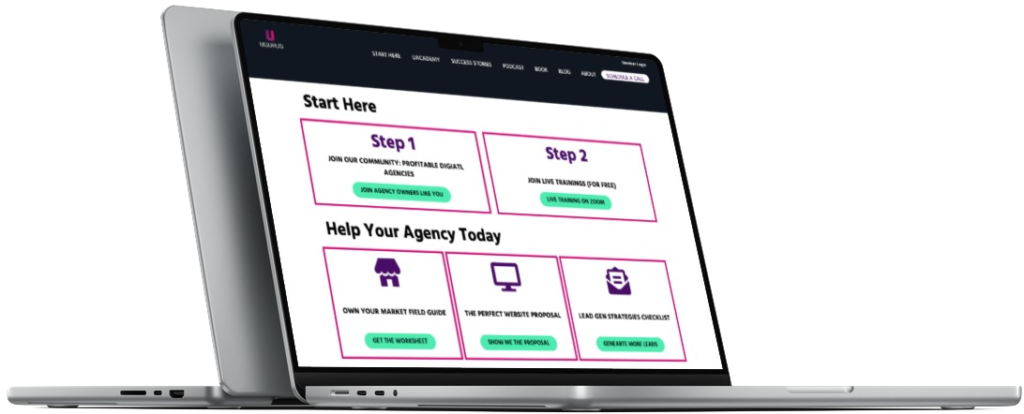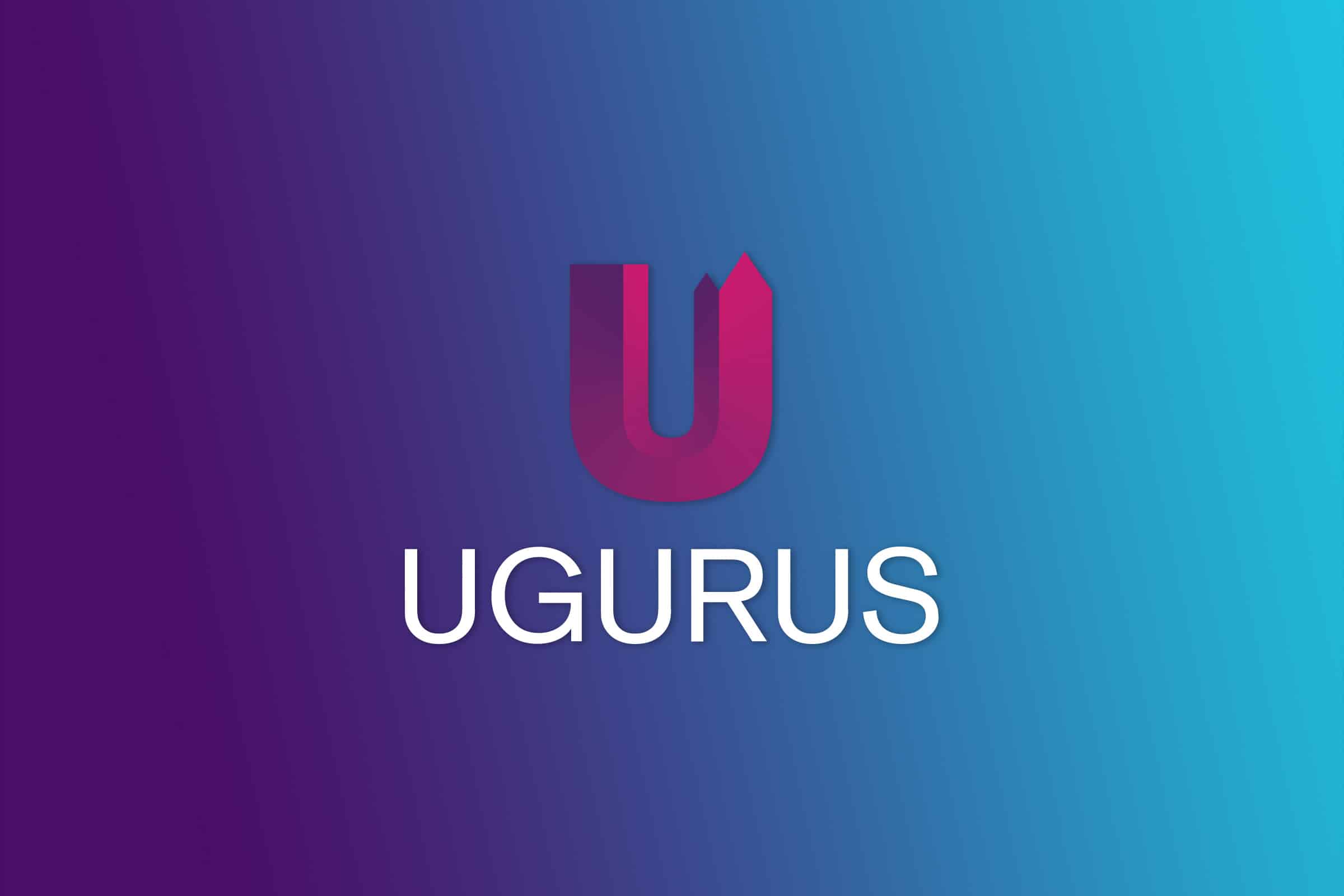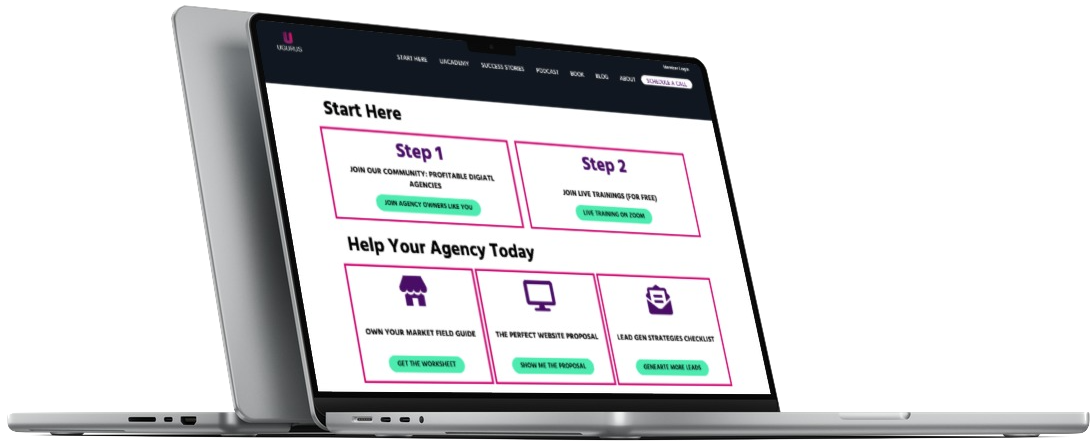Cassidi Brickner is Owner of 10 Pound Gorilla, a DotNetNuke dedicated web development and marketing firm. She founded 10 Pound Gorilla in 2003 and started out designing, skinning and building DNN sites. She now manages a team of front and back end developers. She specializes in sales, design, messaging, marketing and social strategies.
Video Transcript
Brent: I’m Brent Weaver, and you’re watching uGurus. The must see web series to become a more profitable and in demand web professional. When I was growing my web agency one of the thing that we did to set ourselves apart from our competition was to become specialists in a specific type of software instead of being a jack of all trades and the master of none, we kind of picked our technology poison and that actually helped us significantly grow our web agency. Our special guest today is another web agency owner out of Winter Park, Colorado, who’s made a big name for herself in the DotNetNuke space. So I’m happy to welcome, Cassidi Brickner, from 10 Pound Gorilla. Welcome to the program.
Cassidi: Thanks for having me today. I’m very excited.
Brent: So, Cassidi tell us a little about yourself and 10 Pound Gorilla.
Cassidi: I started 10 Pound Gorilla in 2003. I live in Winter Park, Colorado. When I started it I was just looking for a challenge. I wanted to do something different. I was just in the graphic design side of things, and so I wanted to explore the Web. I started with a business partner that didn’t work out so well, but it was great because it got me started. When we came up with 10 Pound Gorilla I was trying to brainstorm creative ideas…
Brent: What does the 10 Pound Gorilla name mean?
Cassidi: Yes, what does it mean? When we were trying to come up with names I was out running and the City of Denver owns Winter Parks Ski Area, and they were going to lease that out to Intrawest which was a development company. So everyone was kind of up in arms and said “Oh they’re going to come and put us out of business,” so I thought “Well, that’s the 800 pound gorilla coming in, so maybe I can be the 10 pound gorilla and help the small guys out so they have a chance against the 800 pound gorilla.” The tagline at the time was using strategy to gain power. That was kind of the inception of the company. Me, personally, I’m a big outdoor enthusiast, so I love to go skiing, mountain biking, golfing, fishing and anything outside.
Brent: What kind of stuff does 10 Pound Gorilla do?
Cassidi: We do web development and Internet marketing. Specifically we specialize in the DotNetNuke content management system, and do kind of basic stuff, surf engine optimization, social media marketing and strategies for folks, help with a lot of AdWords campaigns, things like that, but our core business is around that DotNetNuke platform.
Brent: So, you’ve mentioned the “we” element, so how is 10 Pound Gorilla set up currently?
Cassidi: Currently we have 6 people who are part of our team, and we work with a couple of different sub-contractors in addition to that. Our main office is in Golden, Colorado, so we have two of our team members in that office. I occasionally will work out of that office. I work up in Winter Park, pretty much by myself out of my office, and then our other team members work remotely. I have two guys in Texas, and then a couple on the east coast. So we all Skype in the morning and communicate that way, like we do with most of our clients.
Brent: I know remote work, in general, is kind of a hot topic. I’m not sure if you heard of the whole Yahoo! thing? They basically stopped remote work…
Cassidi: Yes.
Brent: How do you guys make “remote work” work for you?
Cassidi: In finding the employees I look for somebody that is kind of their own worst critic. They are very self motivated, more in charge of their own space, and enjoy the challenge of being handed tasks individually. So there is a certain personality type I look at when I go to hire people remotely. And then usually I’ll test people out, kind of on a sub-contractor base, and see how I feel the handle working on their own. What I’ve found successful, because I think when you work remotely you get detached from that actual “water cooler” space that creates some kind of team camaraderie, so I try to bring my team together at least once or twice a year for something fun, so we can all come around and enjoy each other and really connect and respect each other on a different level than just – oh that’s someone that does this work and you don’t have that face-to-face or personal interaction with them.
Brent: What was the last thing that you guys did for fun?
Cassidi: Just this last weekend we went out for the Day of DNN conference, which was in Charlotte, North Carolina, and it was a little bit of work but a lot of fun. One of my team members spoke and then I did a day of training and spoke at that as well, but most of the networking happens at night until about 4:00 in the morning, so I can’t say it wasn’t [inaudible 04:39] fun…
Brent: I don’t know, maybe I need to start going to DotNetNuke conferences. 4:00 in the morning, that sounds like a good time.
Cassidi: They try to one-up each other. This time they took the trainers to the racetrack, and it was the little gas go-cart tracks, the ones that go 50 miles per hour, and they did a race and it was all boys and me, so of course I was challenged. I said “I’m going to beat all you guys,” and guess what? I won.
Brent: Nice, so not only are you an agency owner and a DotNetNuke expert, but you are a go-cart champion?
Cassidi: Yes.
Brent: Very cool. We have that on record so…
Cassidi: Yeah.
Brent: What kind of tools do you guys use to stay connected, I mean the virtual agency, virtual office, and remote work thing, I’m sure it can be challenging, but what kind of stuff do you guys use to stay connected?
Cassidi: Skype is our main tool. That really engages us almost immediately. You know when someone’s on, you know when somebody’s busy they don’t want to be bothered. We [also] do instant messaging, but we really use the “call” feature a lot, and we also use the screen share feature a lot, because sometimes, when you’re trying to explain something over the phone and you say, “Can you move that thing, over there, to the right? Well, never mind, let me just show you,” and so then we jump on the screen share and can kind of show each other what we’re thinking or if someone’s getting stuck with a coding problem, or something like that, we can use that tool as well. Other tools, as far as file sharing – and this even in a real office where there would be people file sharing is always kind of an issue if people aren’t putting them in the same place, so we use Dropbox. That’s easy for us to all interact with and also very easy to send clients files, links to download, or to view different files, proofs, that kind of thing. That is a tool that we use a lot. From an actual project management perspective who’s working on what and what deadlines are there, we use a tool called Get it Done. It’s a pretty simple tool, I know there’s a lot more robust, but I find that when there’s more features in some of those tools, you get caught up the paralyses of analyses and you’re not really actually doing the work. So I try to find tools that give us enough information that we know kind of all what we’re supposed to be doing, but not too much information where we’re too busy inputting and not working.
Brent: I know from personal experience at least I’ve spent a lot of time managing the product management tool. You realize how much time you are sitting there spending either data entry or like moving things around and you are like “Wait is this actually doing work or,” sometime it’s hard to tell, but it sounds like you guys have created a very efficient, streamline system for dealing with that.
Cassidi: Yeah, and it works for us, and I’ve played with a lot of different systems because from my perspective if it’s eating up my employee’s time then they’re not doing work that we can bill for, so it’s really important that they don’t get frustrated inputting the information and that they are efficient in inputting that information, but that we have the right communication tools so that there’s not messages missing because that affects the end result from a client perspective.
Brent: Sure. Who is an ideal customer for 10 Pound Gorilla?
Cassidi: Our ideal customer, I think, is someone that really wants to be engaged in the project with us, not somebody who just wants to hand the project to us because we work with so many different industries that for us to be an expert in all of them would be impossible. We really enjoy the challenge of learning new industries, but it’s more successful for us if a client want to participate and communicate with us, and actually participate throughout the process, and when I say that they are not making some of the key web decisions, but they will sit and really help us better understand what they do, what their challenges are, what their goals are, so we can better help them.
Brent: Now I know a lot of people like to promote picking a niche or a special market that they only do business with, but it sounds like you’re more interested in their personality and their work style and their interest in the project versus some specific market.
Cassidi: Yeah, and that’s an interesting challenge, because people come to us when they’re looking to hire us and say “Can you show me examples of other realtor websites?” or “Can you show me examples of another hair stylist site?” or “a school website?” Usually we have another one relevant in there because we’ve worked with so many different folks. What I try to tell people is that everyone has the same problems, they just have different content. We’re problem solvers, so it’s more important that we’ve had a lot of challenges in terms of solving problems than the actual content that was around those problems. That’s a little bit of an education process to let the client know that just because you’re a realtor doesn’t mean that somebody that’s in the education world or space wouldn’t have the same challenge on the internet.
Brent: Gotcha. Moving on from what your ideal customer is, how do you guys get your customers? Where do you find them? How do you guys [get your customers] on board and sell new customers?
Cassidi: I would say the most valuable thing for us has been referral and word or mouth. That’s where it’s really important to me that we deliver a 100% satisfying product, because that’s been I think every year we’ve grown and I think our referrals stand for that. As far as new business, the search engines bring us new fresh leads, AdWords as well, and then we do some blogging and get that out there. We do topics that we would be- give enough information to get people pointed in the right direction, but give them the idea that we know even more so they contact us for that. Since we do specialize in that DotNetNuke platform we can really gear some of those conversations towards that. Since we have picked that niche in the DotNetNuke space, making sure that we attend the conferences that we connect with the right community member that are actually being really proactive and really doing that networking and face time, so when people go to look for DotNetNuke developers somehow they’ve heard of 10 Pound Gorilla, they’re not sure why but they’ve just seen us because we’re there.
Brent: I’d love to focus in on that specific thing a little bit more. You mention that you guys are kind of DotNetNuke experts, like you’ve picked this technology path. Is that the majority of the work you do?
Cassidi: Yeah, I would say 80% of the work we do is in the DotNetNuke space. Probably the majority is clients who’ve come to us for that DotNetNuke solution and then they’ve decided to add on and use some of our more Internet marketing services or social media services. It was not somewhere where we immediately started 10 Pound Gorilla and said “Oh, we have to have to have a technology that we latch ourselves onto,” it was something that evolved for us. What we saw was that we were gaining a lot more traction in the search engines, in the community, and internally being a lot more successful solving those problems by dedicating ourselves to one solution. DotNetNuke for us seemed to make the most sense. When we actually, really, truly committed to that it made more sense on multiple levels internally and externally. It really helped to build our business.
Brent: So I hear a lot of web pros will say “Well I picked the technology that’s right for my customer,” or “that works best for my customer.” It sounds like you guys decided to pick a technology and then, depending on who the customer is, you either take the customer or you pass the business if it’s not a good fit. Is that a good-?
Cassidi: Yeah, and I would say we felt comfortable going forward with DotNetNuke because it, probably, works for 90% of the leads that come in, it really is a good solution and expandable solution, and something that they can rely on for the future. That is something that is important too, we don’t want to put our customer into something that in two years is outdated, it’s not going to be updated, so it needed to have that upgrade path. There are folks who come in, and maybe their website is a really robust e-commerce solution, DotNetNuke is not great in the e- commerce space right now. Hopefully that will change. Those are ones that we’ll bring in partner web-developing companies that we work with, or just refer them out if we have a fit for them. It would just do us more damage to pretend to be able to take on that work and provide them with a solution that’s not up to par, because again, that customer referral is so important.
Brent: How, when you guys first decided to become experts in DotNetNuke, was that an immediate decision? or did it take you guys a while to kind of decide to pick a specialty like that.
Cassidi: I think, for me, it picked us. It was something that just kind of kept being there at our side and we got more and more involved with [it]. As time progressed, all of a sudden, the community started identifying us as a leader, as well the search engines continued to list us in the top for different terms around DotNetNuke. It was something that, all of a sudden, I was like, “Okay. I think we are one of the leaders in this technology, so why not claim it and push it a little bit further?” I think it was just one of those things that it worked for us it wasn’t a conscious “Today we’re going to pick something,” but I really do recommend that people find that specialty and I don’t think that you always know when you first start in business what your strengths are, but I think if you can identify that then you really set yourself apart from competition.
Brent: Do you have any tips for web pros that are out there who are considering becoming experts in a specific platform, what kind of things could they do to expedite that process or maybe get some of the limelight like it sounds like you guys have gotten.
Cassidi: I think the first thing is you have to find a platform that you’re going to be comfortable developing in, because if you’re not comfortable in the space then you’re not going to be able to produce the best product that you can produce. I think the second thing is to actually evaluate the technology you’re looking at, and a couple of thing is how far can it be leveraged? Are there limitations? and understanding those limitations. Does it have an upgrade path? Is there a strong enough presence behind it that that technology is going to continue to exist? Because, as my ex-business partner use to say “When you were in the buggy whip industry and then buggies were no longer, you were, kind of out of business.” You have to be on top of it too. If you dedicate yourself to an environment, if that environment starts degrading or taking different directions, I think you need to pay attention and be ready to change what you’re offering as well. I think if you can identify all of those items and pick the right solution for you, then, and this is kind of an awkward thing to say but, “fake it ’till you make it,” because I even tell my staff “I know you’re really good, I know you can figure that out, so you’re going to.” If you don’t challenge yourself in that way- if you commit to do something and you know you’ve committed to it, you have to figure it out. If you kind of go into the attitude that “I deserve to be a leader in this space,” then go in with that energy and just make sure that you have the confidence and the dedication to back it up.
Brent: Where’s the puck moving for 10 Pound Gorilla? What’s next?
Cassidi: You know that’s always a challenge to foresee what’s next, because it’s really easy to get caught up in your day to day and not look into the future, but I do try to challenge myself, looking into that future more for employees, because I want to provide the best environment for them and I want to make sure that I can continue to do that. So I debate, do I want to continue to grow the team and continue to do what we do and just try to move up the ranks as far as taking on larger projects and larger customers or do we use our internal knowledge and come up with something that’s more product based and potentially try doing a balance? I like the challenge of working with clients, but it’s a tough challenge because one day you have 20 projects coming in and then you get them done and it’s crickets for a month, and you’re just like “really could we have spaced that out a little better, because we just worked 80 hours every week for the last month.” So, the actual live customer to customer stuff can be challenging as well. So I think you’ll either continue to see us grow and become a larger presence on the internet and probably continue in that DotNetNuke space or come out with some product offerings and probably leveraging the DotNetNuke solution.
Brent: Very cool. So you guys have started to look at the agency or the typical service business, kind of, evolution and I always see companies as they grow to a certain point they start to look at some product opportunities and it sounds like you guys have a couple of those that your currently working on.
Cassidi: Yeah, on a real basic level, we’ve done some custom skins that are for sale on the marketplace for the DotNetNuke environment. There’s a skin generator out there called Artisteer, but it doesn’t create the best code, and it’s not as flexible as people would like it to be, so we’ve kind of hit the drawing board on how to push that envelope because a lot of third party template skins are sold, but people want to customize them, so how do we give them that flexibility at a price point that they can afford. We’ve been concepting this skin generator that I think is really going to provide the best of both worlds.
Brent: Very cool. How would somebody find more information about you and 10 Pound Gorilla?
Cassidi: Online.
Brent: The Internet.
Cassidi: Yes. It’s 10PoundGorilla.com it’s one, zero then P-O-U-N-D, and that really talks about our full services that kind of thing. You can Google us as well and find a different places where we’re listed. Or Google “Cassidi Brickner”. Cassidi with an “I”.
Brent: We’ll definitely include information on how people can contact you in links and all that good stuff.
Cassidi: Great.
Brent: We appreciate you stopping by and of course you are always welcome. Hopefully we’ll see again soon.
Cassidi: Thank you so much for having us.
Brent: If you have any questions for Cassidi feel free to leave a comment and hopefully she’ll get back to you as soon as she can. If you enjoyed today’s video feel free to subscribe to our YouTube channel or, of course, share this video with your friends on Facebook and Twitter. If you would like additional insights and resources feel free to go uGurus.com and sign up for our email list, and, of course, stay tuned for more great content from uGurus.com.
GET YOUR FREE AGENCY ACCELERATOR PACKAGE





